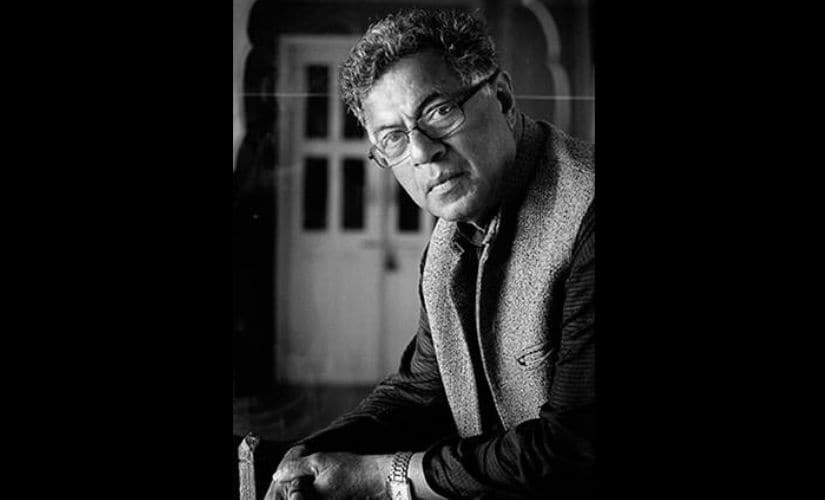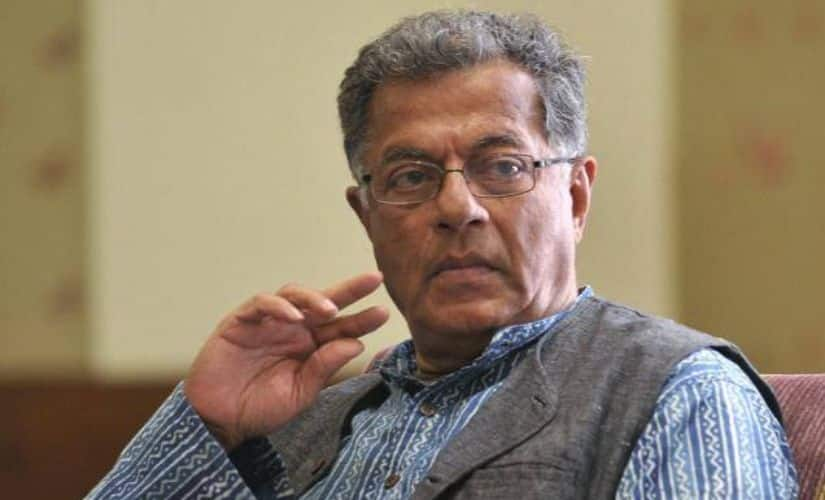The words of Søren Kierkegaard— “Life can only be understood backwards; but it must be lived forwards” — echoed upon hearing the news of Girish Karnad’s demise . Karnad, 81, was indeed one of India’s most celebrated playwrights and literarians, whose contribution to art and literature shall perhaps remain unmatched. One of the trailblazers of the new post-Independence theatre movement in India, Karnad boasted of a uniqueness that stemmed from the fact that he often looked back into the past to understand the present day. Karnad’s works are a near-perfect amalgamation of tradition and modernity, two diverse worlds divided by language yet conjoined forever owing to an unshakable legacy. [caption id=“attachment_6790011” align=“alignnone” width=“825”]  Girish Karnad[/caption] Karnad first experienced a play in the small town of Sirsi, Karnataka, where he grew up. His parents, Raghunath and Krishanabai, took him to the productions put up by the visiting Natak Mandalis where he watched a few plays before the traveling troupe moved on. Having grown up watching mostly classical plays, Karnad unsurprisingly found himself writing his play while reading the Mahabharata. He found the age-old story of Yayati, a king in the Mahabharata who exchanges his decrepitude with the youth of his youngest son, Puru, to stave off the curse of premature old age alluring and symbolic of the cosmos he occupied. Karnad wrote the play while he was studying philosophy and politics as a Rhodes scholar at the University of Oxford between 1960–63. He read a lot of Western writers, including Jean-Paul Sartre, Albert Camus as well as a few other existentialists. As a result, his interpretation of the story of Yayati became a tale about assuming responsibility, a concept that many of the authors he read harped about. At a time in the 1960s when the present was far more pulsating, Karnad continually evoked the memories of the past to understand the world. The past symbolically and metaphorically emerged yet again in Karnad’s next play, Tughlaq, the tale of a 14th-century monarch in Delhi that held a mirror to Indian politics of the 1960s. In Tughlaq (1964), Karnad told the story of Delhi Sultanate’s Muḥammad bin Tughlaq. Although the play might have been historical, its treatment was highly political. It became both timely and timeless as it could be a stand-in for any scatterbrained politician. Karnad’s tragedy showed the limits of human power in a predominantly psychological context, though he often brushed off comparisons between his protagonist and India’s first Prime Minister Jawaharlal Nehru. In RK Dhawan’s Girish Karnad: The Man and the Writer (1999), Karnad was quoted as saying that he did not “consciously write about the Nehru era”, and while he did not intend it to be “a contemporary play about contemporary situation,” he was flattered when people told him that Tughlaq was about “the Nehru era and equally applies to development of politics since then.” _(Also read: Girish Karnad's plays exemplified his generation's transformative practices, but also bore his distinctive mark)_ In the early 1970s, Karnad, along with Vijay Tendulkar, Badal Sircar, and Mohan Rakesh, became one of the flag-bearers of the new theatre movement in post-independent India. Unlike Mohan Rakesh’s Ashadh Ka Ek Din (1958), which is considered by many to be the first modern Hindi play, or Tendulkar, who was inspired by real-life incidents or social upheavals, Karnad chose an entirely different delivery mechanism to express himself. His penchant for making the past and the present coalesce in order to give meaning to our existence and times made him stand apart. Karnad was also at the centre of the Navya-inspired avant-garde movement in Kannada theatre in the early 1970s. In 1971, along with Chandrashekhara Kambhar’s Jokumaraswamy and P Lankesh’s Oedipus, Karnad’s Hayavadana, that was directed by BV Karanth, marked the beginning of a new era in Kannada literature. [caption id=“attachment_6790021” align=“alignnone” width=“825”]  Girish Karnad[/caption] Around the same time, Karnad forayed into cinema with Kannada films Samskara (1970) and Vamsha Vriksha (1971), and Shyam Benegal’s Nishant (1975), which he acted in. Karnad also wrote the screenplay for Benegal’s Manthan (1976) and his modern-day retelling of the Mahabharata as Kalyug (1980). He later directed Shashi Kapoor’s opulent Utsav (1984), that was based on Sudraka’s classic Mrichhakatika.
Karnad was also different from the others because he wrote in Kannada and at the same time, translated his works in English himself. His use of symbolism, myths, folktales, and reinterpretation of history, highlighting on contemporary, social and psychological problems, became more potent and immersive as he employed a multi-perspective approach that often combined drama, dance and music.
For Karnad, the past, like William Faulkner expressed, was never dead and was not even the past. While reviewing two of Karnad’s later plays, Bali: The Sacrifice (1980) and Tipu Sultan Kanda Kanasu or The Dreams of Tipu Sultan (1997), literary critic Shalini Umachandran noted how Karnad uses distant as well as long forgotten past to comprehend the events of the modern world. Bali was based on a 13th century Kannada epic Yashodhara Charite but looked at the concept of violence that is beneath the surface. In Bali, Karnad used the Jain notion that intended violence is as atrocious as the action itself; so would one believe that some measures could be justified because they were not intended to be harmful? _(Also read: Girish Karnad cut across linguistic and regional boundaries to become a nationally reverted figure)_ Karnad’s brilliance came from his ability to view nearly everything from the perspective of the past and yet rarely find himself unable to transcend the trappings of such a viewpoint. For starters, agreeing too much with the past or finding semblance for the present in events long gone runs the risk of making us prisoners to a thought process. While Karnad’s art was true to Indian traditions, his travels across the world, including stints as a visiting professor and Fulbright playwright-in-residence at the University of Chicago (1987-88) and the Minister of Culture in the Indian High Commission, London (2000–2003), made his works responsive to contemporary concerns. Karnad was a well-read scholar and there was nothing about various Indian art forms that he was not aware of. As an individual, Karnad was not one to shy away from expressing an opinion that could ‘offend’ others. He came across as someone who believed in the idea of a society that allowed everyone to express themselves freely. On most occasions, he tried to not have a problem with the opposition that he faced. This mostly worked fine for him as well as those who appeared to be the kind of people who opposed his ideology. As an artist, Karnad’s appreciation was never a matter of debate, irrespective of who was in power in terms of political ideology. It was during the tenure of Atal Bihari Vajpayee’s government that Karnad was awarded the highest literary honour in India, the Jnanpith, in 1999. With Karnad’s death, India has lost a doyen of arts and literature, the likes of whom would perhaps never be witnessed again. _(Also read — Girish Karnad remembered by Indian art and culture fraternity: 'His strong, unwavering voice will be missed)_


)
)
)
)
)
)
)
)
)



